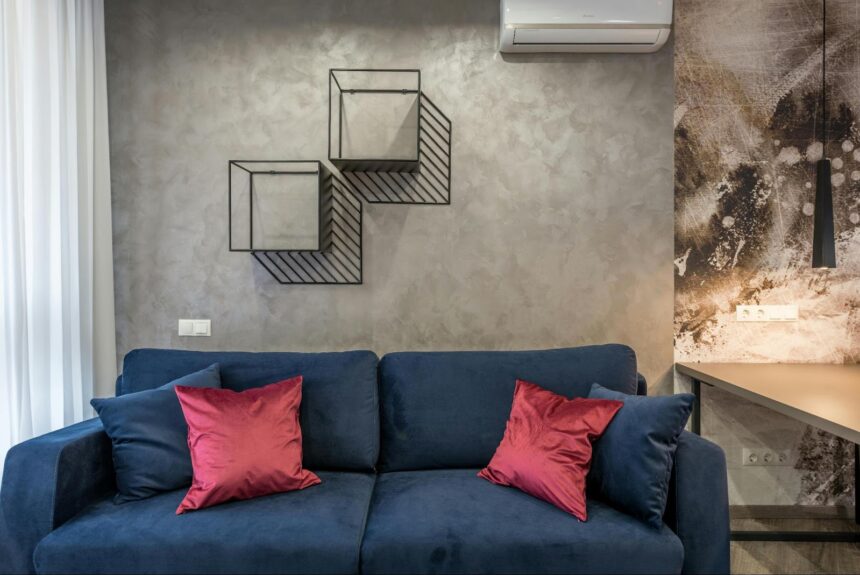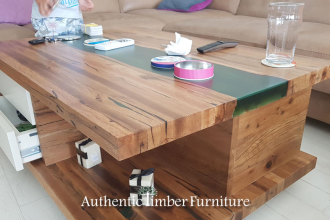During the sweltering summer months, a functioning air conditioner can feel like a lifesaver. However, even the best AC units can run into issues from time to time. Understanding a few basic fixes can save you from sweating it out while waiting for professional repairs. Let’s look into some common AC problems and their simple solutions. Remember, routine maintenance can prevent such issues, and if problems do arise, seeking AC tune ups and repairs near you can help keep your system running efficiently.
AC Blowing Warm Air
Few things are more frustrating than an AC unit blowing warm air on a hot day. This could be due to several issues. First, check the thermostat settings to ensure it’s set to ‘cool’. Next, inspect the outdoor unit to make sure it’s clean and free of debris; a dirty condenser can overheat and cause the system to blow warm air. If these steps don’t resolve the issue, it may be low on refrigerant, which requires professional handling.
AC Won’t Turn On
If your air conditioner isn’t turning on, it could be due to a variety of reasons. The first step is to check the thermostat. Ensure that it is set to ‘cool’ and is below the current room temperature. Next, check the circuit breaker. If it’s tripped, reset it and see if that solves the problem. Lastly, inspect the condensate overflow tray; if it’s full, it may have triggered a safety switch to prevent further issues.
Frequent Cycling
If your AC is turning on and off frequently, it could be struggling to maintain your desired temperature. Ensure that the thermostat is not in direct sunlight, which can cause false readings. Also, check for blocked air vents and filters. Frequent cycling can also be a sign of an overcharged or undercharged system, which involves refrigerant levels that need professional calibration.
Insufficient Airflow
When your AC is running but the airflow is weak, it typically points to a blockage somewhere in the system. Start by replacing your air filter, which should be done every three months for optimum performance. Also, check your air vents and ducts; they should be clean and free of obstructions. If you have access to your ductwork, inspect it for any leaks or damage as this can severely hamper airflow.
Water Leaks
Water pooling around your AC unit is never a good sign. The most common cause is a clogged condensate drain line. Use a wet/dry vacuum to clear the clog or, if you’re comfortable, flush the line with vinegar to dissolve any buildup. Also, ensure that your unit is properly leveled as an off-kilter unit can cause water to spill over from the overflow pan.
Strange Noises
Is your air conditioner making weird noises? Different sounds can indicate different problems. A hissing noise typically suggests a refrigerant leak, while a banging sound might indicate a problem with the compressor. Clicking noises can be due to electrical issues. Turn off the unit and consult a professional if the noise persists after basic troubleshooting, such as tightening loose parts or checking for debris.
Signs You Might Need a New AC Unit
Sometimes, despite all our best efforts, an AC unit may just be at the end of its lifespan. If your AC is over 10-15 years old, requires frequent repairs or your energy bills have skyrocketed despite regular maintenance, it may be time for a replacement. Newer models are more energy-efficient and can save you money in the long run.
Frozen Coils
Frozen coils inside your AC unit can be a sign of airflow issues or low refrigerant levels. Turn off the unit to allow the coils to thaw. Check and replace dirty filters to improve airflow. Additionally, make sure that your system is not running with obstructions blocking the outdoor unit, as this can impact its functionality. If the problem persists, low refrigerant might be the cause and you’ll need professional help.
The Importance of Proper Installation
When installing a new AC unit, proper installation is crucial. An incorrectly installed air conditioner can lead to many problems, including poor efficiency, frequent breakdowns, and a shorter lifespan. Always hire a reputable professional to install your unit and ensure they follow the manufacturer’s specifications and local building codes for the best performance.
Preventative Maintenance Tips
The best way to avoid AC issues is through regular preventative maintenance. Schedule a professional tune-up at least once a year, ideally in the spring before the summer heat hits. During a tune-up, a technician will check refrigerant levels, clean coils, and ensure all components are in good working order. Regular maintenance can extend the life of your unit and keep it running efficiently.
Conclusion
Air conditioning issues can be a major inconvenience, but many common problems have straightforward solutions. By understanding these basic fixes, you can ensure your home remains cool and comfortable throughout the hottest months of the year. Remember, while these tips are helpful, don’t hesitate to consult a professional when in doubt or when dealing with refrigerant and electrical components. Stay cool and keep your AC in top shape!













